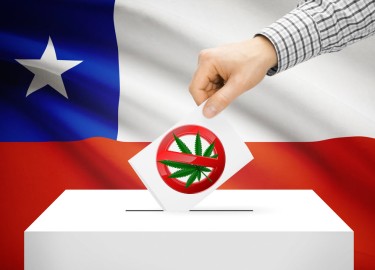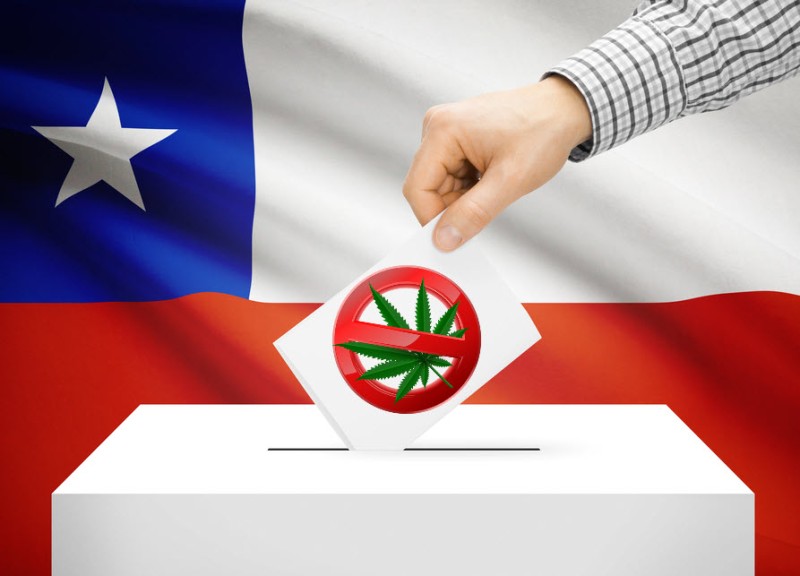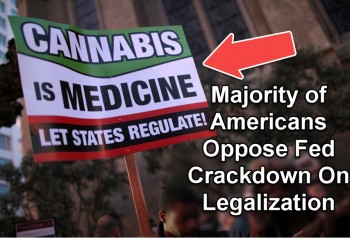
Texas Senate Votes to Kill Democracy (But Only If It Involves Weed)
In a move that should alarm anyone who values democratic principles, the Texas Senate has passed a bill that would prohibit cities from placing marijuana decriminalization initiatives on local ballots. The legislation, which passed in a 23-8 vote, now heads to the House of Representatives where it could take another step toward becoming law.
Let that sink in for a moment: elected officials in Texas aren't just trying to block cannabis decriminalization—they're actively working to prevent citizens from even voting on the issue. It's an extraordinary power grab that strikes at the heart of local democracy and self-governance.
The bill, sponsored by Senator Charles Perry (R), would specifically bar localities from putting any initiative on the ballot that would "provide that the local entity will not fully enforce" state drug laws. Cities that dare to let their citizens vote on such measures would face hefty civil fines—$25,000 for a first offense and $50,000 for subsequent violations.
This isn't just about cannabis; it's about whether Texans have the right to decide how their communities are governed. When a state legislature tells cities they can't even ask their residents what they think about an issue, we've moved beyond policy disagreement into something far more concerning: the suppression of democratic expression itself.
Let's unpack what's happening here, why it matters, and what it tells us about the future of cannabis reform in Texas and beyond.
The "Chaos" Argument: Valid Concern or Convenient Excuse?
Governor Greg Abbott has previously pushed back against local cannabis reform initiatives, arguing that allowing cities to set their own policies would lead to "chaos" and create an "unworkable system" where voters in individual cities are "picking and choosing" which state laws they want to abide by.
On the surface, this argument has some merit. Imagine driving through Texas with a small amount of cannabis that's perfectly legal in one city, only to be arrested when you pass through another. It would create a confusing patchwork of enforcement that could be difficult for both citizens and law enforcement to navigate.
But dig a little deeper, and this argument starts to fall apart. We already live in a world of varying local ordinances. Some counties in Texas are dry, prohibiting alcohol sales entirely, while others allow them freely. Speed limits vary from town to town. Local noise ordinances differ. Somehow, society manages to function despite these variations.
More importantly, the "chaos" argument conveniently ignores the reality that working through traditional legislative channels has proven to be a dead end for cannabis reform in Texas. When Abbott says, "If they want to see a different law passed, they need to work with their legislators," he's essentially telling advocates to pursue a path that has consistently led nowhere.
This isn't a theoretical concern. Cannabis reform bills have been introduced in the Texas legislature session after session, only to die in committee or face opposition from leadership. When the traditional channels of legislative change are systematically blocked, local ballot initiatives become one of the few viable paths forward.
The Will of the People vs. The Power of the State
What makes this situation particularly troubling is that these local initiatives aren't being pushed through by rogue city councils—they're being approved directly by voters. In cities like Dallas, Denton, and others, citizens have gone to the polls and clearly expressed their desire for cannabis decriminalization.
A 2023 report from Ground Game found that these voter-approved measures have kept hundreds of people out of jail. That's hundreds of lives not disrupted by arrests, court appearances, and criminal records—all for possessing a plant that's legal in 24 states and medically available in 38.
By seeking to block these ballot initiatives, Texas lawmakers aren't just opposing cannabis decriminalization; they're actively working to prevent citizens from expressing their democratic will. It's a stunning example of elected officials telling their constituents, "We don't care what you think—you don't get to have a say on this issue."
The irony is particularly striking coming from Texas Republicans, who often position themselves as champions of local control and limited government. Apparently, those principles only apply when local communities want to implement policies the state leadership agrees with.
The Practical Reality of Cannabis Reform
While there's a legitimate debate to be had about the relationship between state and local laws, the practical reality is that local decriminalization initiatives have emerged as a crucial first step in cannabis reform precisely because other avenues have been closed off.
Cannabis reform doesn't happen overnight. It's a process that typically begins with decriminalization, moves through medical legalization, and eventually reaches full adult-use legalization. In states across the country, this evolution has often started at the local level before gradually expanding statewide.
By creating bottlenecks in the legislative process and now attempting to block local initiatives, Texas officials aren't just maintaining the status quo—they're actively working to prevent any form of democratic evolution on this issue. It's a strategy designed to ensure that cannabis reform never gets a foothold, regardless of how many citizens support it.
This approach ignores the fact that cannabis prohibition is increasingly viewed as a moral and practical failure. When a majority of Texans believe that people shouldn't be jailed for possessing cannabis—and polling consistently shows this is the case—they should have the right to implement policies that reflect those values in their communities.
The bill's sponsors might argue they're simply enforcing state preemption over local laws, but there's something fundamentally different about drug enforcement compared to other policy areas. Cannabis arrests and prosecutions are discretionary actions that consume local resources and affect local residents. Communities should have some say in how those resources are allocated and those policies are implemented.
The Strange Logic of the Senate Bill
One of the most peculiar aspects of this legislation is the apparent contradiction in its justification. Senator Perry noted in his statement of intent that "In 2024, the attorney general launched lawsuits against multiple cities for adopting non-prosecution policies that violate Texas laws concerning marijuana possession and distribution."
If, as the Attorney General argues, these local decriminalization measures already violate state law, why is new legislation necessary to prevent them? The fact that this bill was deemed necessary suggests that the legal arguments against local decriminalization might not be as airtight as officials claim.
It's also worth noting the escalation in this bill. Not content with simply declaring local initiatives invalid, the legislation creates a reporting system for citizens to inform on their cities, mandates expedited legal proceedings, and imposes substantial financial penalties. This goes well beyond clarifying legal boundaries—it's punitive by design.
The inclusion of provisions specifically targeting hemp regulations is another telling detail. Hemp production was legalized federally in the 2018 Farm Bill, and Texas has its own hemp program. Yet this bill would prevent localities from putting initiatives on the ballot that would "contravene the state's consumable hemp laws." It's a remarkably broad provision that could have implications well beyond the obvious target of marijuana decriminalization.
The Way Forward: Federal Reform and Cultural Shift
The Texas Senate's action underscores a fundamental truth about cannabis reform: as long as prohibition remains federal policy, we'll continue to see this kind of resistance at the state level. The patchwork approach to legalization, while it has made significant progress, inevitably creates these tensions between different levels of government.
Federal legalization would resolve many of these conflicts by establishing a consistent national framework. It would prevent states like Texas from hiding behind federal prohibition as justification for their own restrictive policies. This is why advocacy at the federal level remains crucial, even as state-by-state progress continues.
But there's another dimension to this struggle that transcends legal and political maneuverings. Cannabis has always been more than just a policy issue—it's a cultural one. Throughout history, attempts to suppress cannabis use have often backfired, strengthening rather than weakening the cannabis community.
When authorities push too hard against cannabis consumers and advocates, they don't eliminate cannabis culture—they transform it into a counterculture. And as we've seen time and again, today's counterculture often becomes tomorrow's mainstream.
This is the way of weed. From jazz clubs in the 1920s to hippie communes in the 1960s to medical dispensaries in the 1990s to recreational shops today, cannabis has consistently overcome attempts to suppress it. Each generation of prohibition has sown the seeds of the next wave of normalization and acceptance.
The Sticky Bottom Line
The Texas Senate's attempt to block cannabis decriminalization initiatives isn't just bad cannabis policy—it's bad democratic policy. It represents an extraordinary effort to silence the voices of citizens on an issue of growing importance and shifting public opinion.
While Governor Abbott's concerns about a patchwork of laws have some validity, they don't justify shutting down democratic processes entirely. If state leaders are genuinely concerned about inconsistent enforcement, they could address it by implementing statewide decriminalization—a policy that Abbott himself has suggested he doesn't oppose in principle, when he stated that people shouldn't be in jail for marijuana possession.
The reality is that local ballot initiatives have emerged as a crucial pathway for cannabis reform precisely because traditional legislative channels have been systematically blocked. When people can't effect change through their representatives, they'll find other democratic means to express their will.
If this bill becomes law, it won't end the push for cannabis reform in Texas—it will simply force advocates to find new approaches. History has shown that cannabis prohibition is ultimately unsustainable, both practically and morally. The plant always finds a way, and so do its advocates.
For Texas officials determined to maintain prohibition at all costs, even at the expense of democratic principles, this might be a moment of temporary victory. But in the longer arc of history, it will likely be remembered as a last-gasp effort to hold back an inevitable tide of change.
The way of weed is patient but persistent. It outlasts its opponents not through force but through gradual, inexorable cultural shift. Texas may push back against democracy today, but the will of the people—and the plant—will find expression tomorrow.
DOES TEXAS HATE WEED? READ ON?
DOES TEXAS HATE WEED? NO, 63% OF VOTERS SUPPORT LEGALIZATION!






